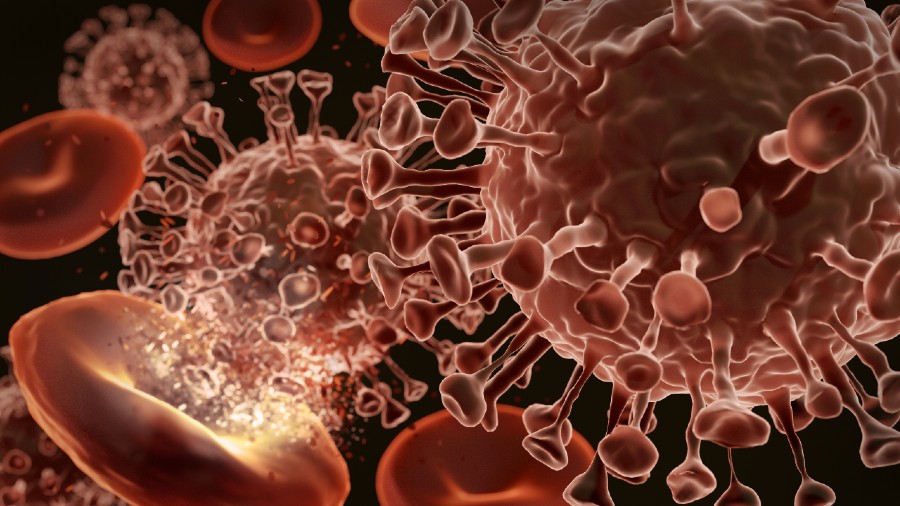The Delta variant of the SARS-CoV-2 virus, that causes Covid-19, is unable to evade the antibodies generated by vaccination, according to a lab study.
The findings, published in the journal Immunity, help explain why vaccinated people have largely escaped the worst of the Delta surge.
Researchers at Washington University School of Medicine in the US analysed a panel of antibodies generated by people in response to the Pfizer Covid-19 vaccine and found that Delta was unable to evade all but one of the antibodies they tested.
Other variants of concern, such as Beta, avoided recognition and neutralisation by several of the antibodies, they said.
In previous studies, Ali Ellebedy, an associate professor at Washington University, had shown that both natural infection and vaccination elicit lasting antibody production.
However, the researchers noted that the length of the antibody response is only one aspect of protection, and breadth matters too.
An ideal antibody response includes a diverse set of antibodies with the flexibility to recognise many slightly different variants of the virus, they said.
According to the researchers, breadth confers resilience, adding that even if a few antibodies lose the ability to recognise a new variant, other antibodies in the arsenal should remain capable of neutralising it.
"The fact that Delta has outcompeted other variants does not mean that it's more resistant to our antibodies compared to other variants," said co-senior author Jacco Boon, an associate professor at Washington University.
"A variant that replicates better is likely to spread faster, independent of its ability to evade our immune response. So Delta is surging, yes, but there's no evidence that it is better at overcoming vaccine-induced immunity compared to other variants," Boon added.
To assess the breadth of the antibody response to SARS-CoV-2, the researchers extracted antibody-producing cells from three people who had received the Pfizer vaccine.
They grew the cells in the laboratory and obtained from them a set of 13 antibodies that target the original strain which began circulating last year.
The researchers tested the antibodies against four variants of concern: Alpha, Beta, Gamma and Delta.
Twelve of the 13 recognised Alpha and Delta, eight recognised all four variants, and one failed to recognise any of the four variants.
Scientists gauge an antibody's usefulness by its ability to block virus from infecting and killing cells in a dish.
The neutralising antibodies that prevent infection are thought to be more powerful than those that recognise the virus but can't block infection, although both neutralising and non-neutralising antibodies contribute to defending the body.
The researchers found that five of the 13 antibodies neutralised the original strain.
When they tested the neutralising antibodies against the new variants, all five antibodies neutralised Delta, three neutralised Alpha and Delta, and only one neutralised all four variants.
"In face of vaccination, Delta is relatively a wimpy virus. If we had a variant that was more resistant like Beta but spread as easily as Delta, we would be in more trouble," Ellebedy said.
The antibody that neutralised all four variants of concern -- as well as three additional variants tested separately -- was called 2C08, the researchers said.
In animal experiments, 2C08 also protected hamsters from disease caused by every variant tested: the original variant, Delta and a mimic of Beta, they said.
Some people may have antibodies just as powerful as 2C08 protecting them against SARS-CoV-2 and its many variants, Ellebedy noted.
Using publicly available databases, the researchers discovered that about 20 per cent of people infected or vaccinated against SARS-CoV-2 create antibodies that recognise the same spot on the virus that is targeted by 2C08.
Moreover, very few virus variants (.008 per cent) carry mutations that allow them to escape antibodies targeting that spot, they added.











